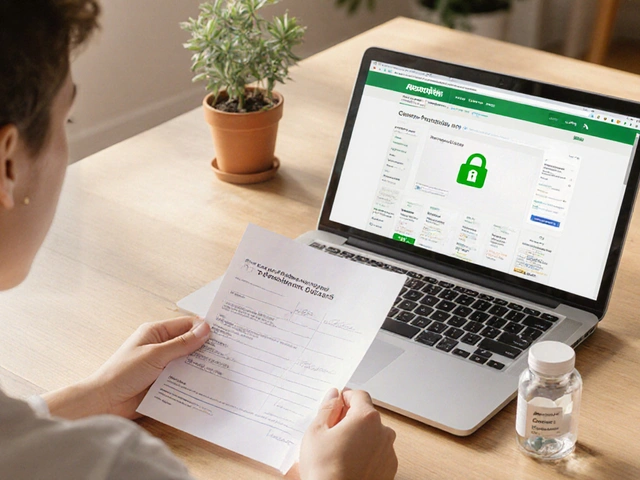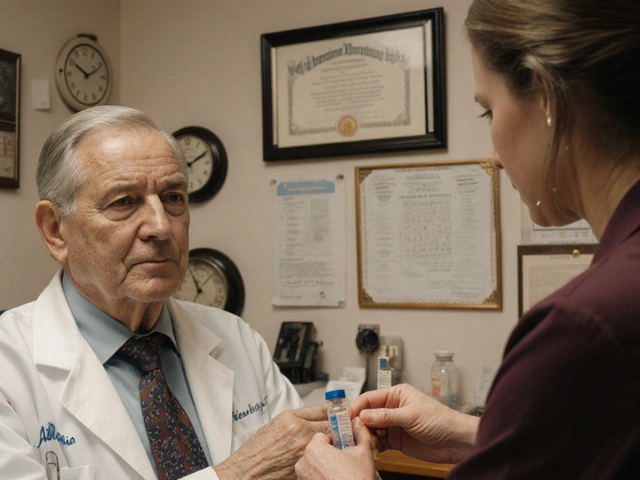Metformin Side Effects: What to Expect and How to Manage
Metformin is the most common drug for type 2 diabetes. Most people tolerate it, but some side effects show up early and are easy to handle. A few rare reactions are serious — know which are which and what to do.
Common, mild side effects and how to handle them
The one patients mention most is stomach upset: nausea, diarrhea, gas, bloating, or a metallic taste. These usually start in the first days or weeks. Try taking metformin with food, splitting the dose, or switching to the extended‑release (XR) form to reduce GI symptoms.
Start low and increase slowly. Doctors often begin with a small dose and raise it over weeks; that approach cuts down side effects while still lowering your blood sugar.
Metformin rarely causes low blood sugar on its own. Low glucose becomes a risk when combined with insulin or sulfonylureas. If you’re on those drugs, learn the signs of hypoglycemia and carry fast sugar (glucose tablets or juice).
Serious risks, monitoring and when to call your doctor
Lactic acidosis is the rare but serious risk everyone asks about. It happens mostly in people with very poor kidney function, severe dehydration, active infection, heavy alcohol use, or severe heart or liver problems. Symptoms include extreme tiredness, muscle pain, trouble breathing, dizziness, or vomiting. If you get these, stop the medicine and seek urgent care.
Kidney checks matter. Your provider should measure eGFR before starting metformin and at least once a year after that, more often if your kidney function is borderline. Many doctors avoid metformin when eGFR is under 30 mL/min and use caution between 30–45.
Long-term use can cause vitamin B12 deficiency in some people. That shows up as numbness, tingling, weakness, or unexplained fatigue. Check B12 levels every year or if you notice nerve symptoms; simple supplements fix most cases.
Tell your care team before scans with iodinated contrast or if you become very sick with vomiting or diarrhea. In some cases they’ll pause metformin temporarily to reduce risk of kidney stress and lactic acidosis.
Practical tips: take metformin with your biggest meal, ask about the XR tablet if stomach upset ruins your day, don’t mix heavy drinking with the drug, and never stop suddenly without checking in with your prescriber unless you have severe symptoms. Keep a medication list and bring it to appointments.
If you’re unsure whether a symptom is side effect or something else, call your doctor. Metformin helps a lot of people safely—knowing the common problems and the rare but serious warnings keeps you in control of your treatment.

Discover Affordable Metformin Deals: A Comprehensive Guide to Benefits and Precautions
Navigating the landscape of Metformin deals can be a complex task, but with the right information, it becomes much simpler. This article explores Metformin, a cornerstone in diabetes management, detailing its medical benefits, potential side effects, and interactions with other medications. Additionally, you'll discover helpful tips on finding the best deals, ensuring you get quality medication at an affordable price. Whether you're newly diagnosed or seeking better options, this guide offers valuable insights into optimizing your treatment plan with Metformin.
Health and WellnessLatest Posts
Tags
- online pharmacy
- medication safety
- generic drugs
- medication
- dietary supplement
- side effects
- online pharmacy UK
- drug interactions
- mental health
- impact
- online pharmacies
- statin side effects
- dosage
- generic vs brand
- pediatric antibiotics
- antibiotic side effects
- skin health
- health
- pain relief
- dietary supplements




